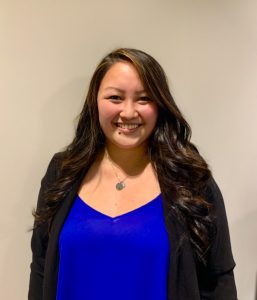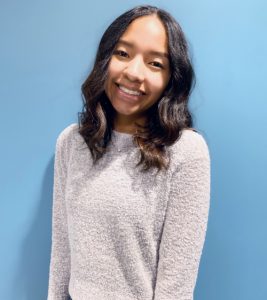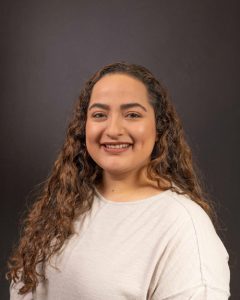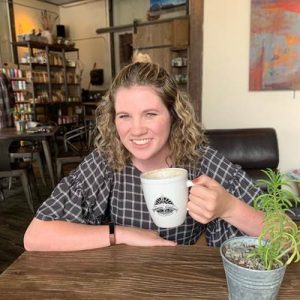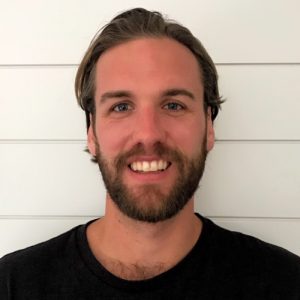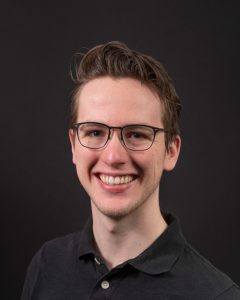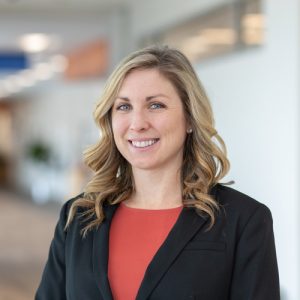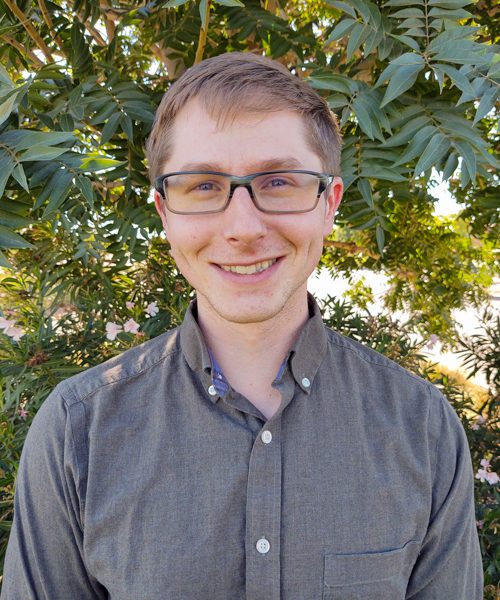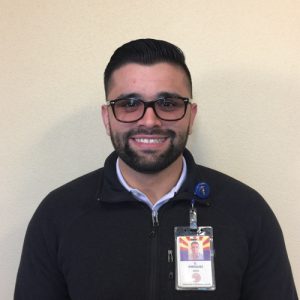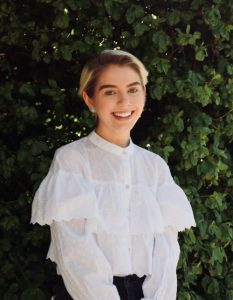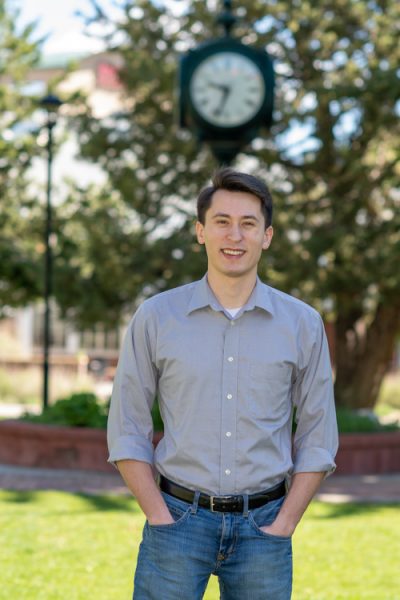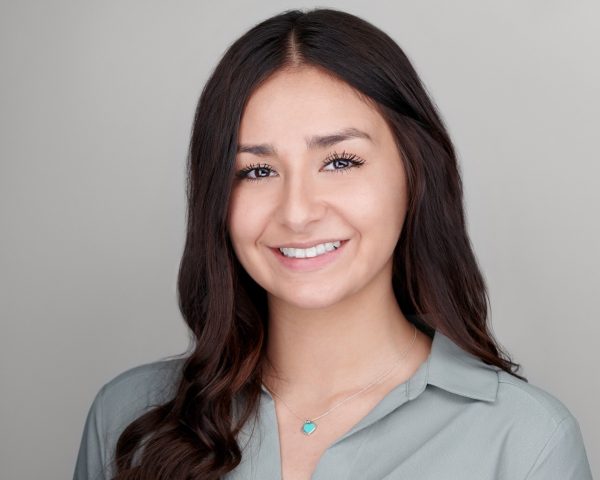Information Meeting
Spring Semester 2025
HLC 3113 Wednesday, February 26, 2025 6-8:00 p.m.Fieldwork and Internship
(PSY 408C)
Students enrolling in the Fieldwork and Internship (PSY 408C) course participate in an in-person seminar and complete an internship. All internship locations with the PSY 408C course are located in Flagstaff and all internship placements require that students submit an application and complete an interview with the internship site. Students are admitted to the course after a positive interview and then with the permission of the instructor.
Each semester an Information Meeting is held for students interested in 408C the subsequent semester. For example, students interested in enrolling in 408C for the Fall Semester attend the Information Session held in the Spring Semester, apply and complete an interview in the Spring Semester, and then can be placed at a fieldwork site for the Fall Semester. Students complete their internship and the in-person seminar in the same semester. The Information Meeting is held once per semester. Students who have a conflict during the scheduled meeting can ask a friend to attend. Many students find it useful to bring a laptop or notebook, as students need to identify those internship site preferences on their application.
Internships offer students many beneficial opportunities, including applying coursework to real-world settings, developing and refining professional skills, expanding or solidifying plans for employment opportunities or advanced training, and developing relationships with professionals in the field. The internship experiences of some students are shared below in the Student Gallery. For further information about the role and importance of internships for students in baccalaureate and graduate programs, please see a series of links at the bottom of this page.
Potential Internship Locations
The Guidance Center
Southwest Behavioral & Health Services
Northland Family Help Center: Domestic Violence Shelter
Northland Family Help Center: Youth Shelter
Juvenile Court Services
Coconino Coalition for Children & Youth
Coconino County Drug Court
Sharon Manor
North Country Health Care: HIV Services
Victim Witness Services
Northern Arizona Care and Services After Assault
Coconino County Adult Probation
Coconino County Public Health Services
Student Gallery
Joe Meza
Class of 2018
For my internship, I was placed in the Substance Abuse Rehabilitation and Residential Program (SARRP) at The Guidance Center. I worked closely under the supervision of the program’s lead therapist. In my role I learned – and eventually, throughout the semester, started to assume – the role of a Behavioral Health Specialist. I was also fortunate enough to learn and practice a specific modality of behavioral therapy called Acceptance and Commitment Therapy (ACT).
I was blessed with the opportunity to facilitate a handful of group psychoeducational sessions. This experience allowed me to translate what I had learned throughout my baccalaureate program (as a Psychological Sciences major) to human interaction with individuals I otherwise would not have had an opportunity to know and from whom I would learn. Psych 408c was an unforgettable experience that I feel privileged to have had the opportunity to participate in. I am a stronger, and more capable, professional as a direct result of the course and am overall a more compassionate and understanding person.
My 408 internship was completed during my final undergraduate year at NAU. I interned with the Exodus program. Exodus is an in-house drug and alcohol abuse treatment program located within the Coconino County Detention Facility. I was supervised by a highly skilled (and animated!) crew of social work professionals who were all completely dedicated to serving persons housed on the Exodus unit. The wing of the jail occupied by the Exodus program housed two units of men and one unit of women. At least during my internship, approximately 70% of inmates were indigenous, primarily from the Hopi and Navajo Nations. While the program utilized traditional western interventions such as SMART recovery and Alcoholic Anonymous, they adapted the model to meet the people in their primary cultural context. We drummed, saged, smudged, and called to the ancestors for strength. Yes, I learned an incredible amount about manualized treatment, but I learned even more about how to incorporate culture and tradition into mental health treatment. Most importantly, I learned to see people beyond their current circumstance. While drugs or related crimes may have brought persons into the justice system, their stories began before and will continue beyond shackles, bars, and barbed wire. I would not be the therapist I am today had I not had the experience of the Exodus program during my time at NAU.
For my fieldwork experience class, I interviewed with and was placed in the Career Center at Goodwill of Central and Northern Arizona. This internship experience was extremely eye-opening. It was challenging and rewarding, and I walked away with a new whole perspective of human resiliency. At my internship, I got the chance to work one-on-one with job seekers in the Career Center; people came from different backgrounds but they all needed help finding employment. I assisted job seekers with building their résumés, applying for jobs, and improving their digital literacy skills. All of Goodwill’s Career Center services are free, and that is because when you shop or donate to Goodwill, 89 cents of every dollar is used to feed their mission and supports job training and employment services. It was rewarding for me to be a part of job seeker success stories, such as when job seekers would drop into the Career Center just to let us know they had found employment. This was very rewarding, and it showed me that even (what may seem like) the tiniest of goodwill kindnesses to others can really have a huge impact on persons’ lives. Lastly, this internship reinforced the importance of kindness and patience and how generous efforts to help people go a long way in helping others strengthen their own lives. I am eternally grateful for this transformative experience. It is something I will never forget.
For my Field Work and Internship class, I was placed with the Coconino County Juvenile Court. Throughout my internship I experienced various opportunities to work with troubled youth and to gain experience from well-trained clinicians. I was able to work directly with youth and provide youth with opportunities to learn from mistakes and to then make better, more adaptive, and more responsible, choices for themselves. The staff at Coconino County Juvenile Court were welcoming and gave me direction on all tasks I was given. My time at Juvenile Court helped to provide clarity on what I wanted to focus on once graduating from college. This internship prepared me for entrance into a graduate program by, in part, the opportunity to interact with youth and get hands-on experience before applying to graduate programs in Counseling. At the end of the internship, I was offered a position – a job – to continue working with youth and helping adolescents to complete their probation or detention program.
I can – without a doubt and without exaggerating – say that Psychology 408c was one of the best experiences of my baccalaureate program of study. Not only was I able to gain first-hand experience and knowledge about the field, but the experience solidified my decision to pursue advanced training in the mental health field. Furthermore, this experience enabled me to begin networking with individuals and organizations centrally focused on mental and behavioral health. For example, a psychologist I met through my internship turned out to be one of my course instructors in graduate school! In terms of professional development, I had the opportunity to shadow case managers and counselors and I learned through observation and in-person training. I learned how to maintain electronic records including progress notes and service plans. Overall, this course gives students a unique experiential opportunity. I encourage anyone who is interested in a field work experience to take advantage of this class.
For the internship I completed through Psychology 408c, I was fortunate enough to be placed with the Teenage Parenting Program. During the semester, just like in lots of classes, I was faced with challenges and achievements. But for the internship class – walking into a classroom of adolescents who were pregnant or had a child – I was challenged to develop relationships with a group of young women who, at first, I thought I might have little in common with. This was intimidating but my self-doubts disappeared once I met the young mothers, listened to their stories, and found common points of interest with them. In the end, I learned more throughout this internship than I could have ever imagined. I was able to make connections between my earlier coursework (such as in Psych 340, Child & Adolescent Psychology, where there was a focus on stages of development) and seeing how babies changed month by month. During my 408c internship and throughout the in-person seminar, I developed professional skills which I used in my first post-collegiate job and will take with me as I begin a graduate program. Working with the Teenage Parenting Program – the young mothers, especially – was possibly the best decision I made at NAU. I will never forget my experience and the positive impact the mothers and their babies in the Teenage Parenting Program had on my life.
My fieldwork placement was an invaluable experience, allowing both coursework connection and professional development. In the Serious Mental Illness Department at The Guidance Center (TGC), I worked with clients dealing with disorders like psychosis, bipolar disorder, and Borderline Personality Disorder, to name a few. This was the first time I was able to interact with people seeking treatment for disorders which I had learned about in my Abnormal Psychology class. Additionally, I saw how treatments and medications (discussed in Clinical Psychology and in Psychophysiology of Drugs and Behavior classes) were applied in a real life, clinical setting.
Completing fieldwork at TGC allowed me to develop confidence, professional relationships, and knowledge in the field of applied psychology. Upon completing my fieldwork, TGC offered me a position in the Substance Abuse Residential Recovery Program. I was able to secure the position because of the professional development skills I learned in 408c. I would highly recommend 408c to anyone interested in connecting their theoretical knowledge to real-life experiences while also developing themselves professionally.
For Psychology 408c, I was placed in the Youth Shelter at Northland Family Help Center. I gained tremendous professional experience working with youth, including extensive and ongoing training on Trauma-Informed Care for those youth who had or were experiencing trauma. I was able to understand the steps throughout a youth’s stay at the shelter. I learned the administrative side of a residential shelter, such as the original Intake, case notes, and the discharge process. Interning at NFHC enhanced my communication and listening skills with not only the youth but also with the staff. After my internship at Northland Family, I was hired as an employee where I continued to gain even more experience. Northland gave me the advantage of getting into a practicum site in my masters program which focused on youth. I could not have asked for a better internship site or class. I can’t recommend it enough.
408c was the most impactful course I took at NAU. I was placed at Coconino County Juvenile Court Services, working as an assistant to a probation officer in the Diversion program. We met with youth – and their families – who were accused of breaking the law and offered youth a relevant alternative consequence such as substance abuse counseling, apology letters, or community service. As someone whose career goal is to become a clinical psychologist, this was an invaluable experience that no lecture (in a Clinical or Counseling Psychology course) could even begin to provide. My site and supervisor taught me how to avoid burnout when working with persons who might not ever get better, interact with families who really do not want to be meeting with you, log those meetings, prioritize an unending number of tasks (there was always work I had to do, which I mean in a good way), and navigate an actual workplace environment (in other words, not in a department store or the kitchen of a fast food restaurant, but in the sort of professional environment to which I might some day want to work full time).
As part of my Bachelor of Science degree program in Psychology at NAU, I enrolled in Psychology 408c, Fieldwork and Internship, for my senior capstone course. Once enrolled, I was placed at Parenting Arizona. My duties included teaching court-mandated parenting classes, typically to parents who were going through a divorce, and participating in community outreach around Flagstaff. These experiences were invaluable to my professional development and future career. I developed a passion for helping parents as a result of my time at Parenting Arizona, and pursued a masters and doctoral degree in clinical psychology, specializing in Parent Management Training and related interventions. Further, these experiences shaped my research and clinical interests and provided me with valuable skills that I would carry on throughout my career.
I enrolled in 408c in my last semester of college. I interned in the Maternal, Child & Teen Health Program, which is a part of Coconino County Public Health Services. My internship was public-health oriented and focused at the meso-level, teaching sexuality education, sexual health, and health-related behavior to 6th and 7th graders in Coconino County. My immediate supervisor, as well as a network of community organizers with whom I had the opportunity to interact, created a supportive environment where I could access clinical information relevant to Sexuality Education courses. I learned how to tailor curricular materials to students in different classes and at different ages; this experience left me with a sense of competence in understanding how clinically-relevant interventions are delivered. None of my other courses could have really prepared me for the in-person experience of working with middle school boys: I had to work with them directly to know about their own lives, their own histories, and their own ideas about themselves. The 408c experience helped me in pursuit of a community-focused graduate program because I had learned what kind of environment I would be comfortable with and competent in. 408c crystallized my understanding of meso-level needs so that I could apply them at the micro-level which I do as a counselor working in community-based mental health.
I was fortunate to intern with the Youth Shelter (part of Northland Family Help Center), a residential facility for children and adolescents. I was able to use my psychology education to assist the staff at the Youth Shelter by co-facilitating one-on-one mediations with clients, providing clients with effective, positive coping skills, and co-facilitate psychoeducational groups. This experience taught me how to case manage (including documentation, reporting, accessing resources and making referrals) and how to work effectively with youth and their families. When I took the class, I was a senior at NAU, and this was my only applied-/clinically-based experience. But, because of my experience at the Youth Shelter, I applied for a case manager position with the Arizona Children’s Association a month before I graduated; I was offered the job and started the job a week after graduation. My experience at the Halo House/Youth Shelter helped me to develop the practical skills that I needed for working with subsequent client & patient populations.
For my internship, I was placed at Northern Arizona Care and Services After Assault (NACASA). NACASA is a sexual assault and domestic violence crisis center that provides free medical forensic examinations, medications, aftercare resources, clothing, and other essentials that patients might need following an assault. In addition, NACASA partners with advocacy agencies to provide information regarding options, crisis intervention, and support. During my time at NACASA, I had the opportunity to develop an aftercare protocol for LGBTQ+ individuals, aggregate a list of LGBTQ+ organizations to build connections with NACASA, and share materials with nurses on how to provide LGBTQ+ care. Moreover, I helped to prepare the exam room in terms of inventory, appropriate aftercare folders, and had the opportunity to shadow several medical exams. I was provided the opportunity to shadow a sexual assault support group, work along professionals to deliver a HIV/Hep C education and testing program in an in-patient facility, and shadow a health psychologist working in the arena of behavioral health. My internship substantially contributed to my professional development: I learned how community health organizations work. I am extremely grateful that I had the opportunity to be an intern with this organization and its vital presence in the community.
Interning in the SMI department of The Guidance Center was one of the greatest experiences of my college career. Within the SMI department, I helped to facilitate group meetings, worked directly with clients, and shadowed both case managers and therapists in their everyday work lives. This expansive experience gave me a view of the mental health field from a first-hand perspective, something that the classroom setting couldn’t give me. During my internship, I was able to see many of the psychological concepts I had learned about in classes actualized and applied to persons in need of psychological care. Perhaps the most valuable lesson I learned, however, was that while many clients were diagnosed with mental disorders straight out of a textbook, they acted nothing like how I thought they would. Many of the clients I met were simply persons dealing with their own struggles. Everyone I met and worked with wanted help, support, and to work toward a normal life. Not only did my internship experience teach me valuable professional lessons, it also served as a stepping-stone to obtaining my first post-collegiate position working in the field of mental health. Because of the opportunities and experiences I had at The Guidance Center, I was able to start working as a case manager at a non-profit integrated health organization only a few months after I graduated. My experience working at the The Guidance Center gave me a great foundation to build up from. I couldn’t be more thankful for my internship and PSY 408c for giving me the tools I needed to succeed.
I enrolled in 408c in my last semester of college. I interned with North Country HealthCare in the department of HIV Services. I learned so much over my semester working with the staff and clients at North Country HealthCare. I became very involved with case management and client support services. Attending and co-facilitating monthly support groups for clients taught me how to support persons living with chronic illnesses. I saw many parallels between some of the in-person classes I had taken (such as Clinical Psychology) and the mental health of the clients I interacted with at our support meetings. I believe my prior knowledge about human development and experience helped me when planning events and activities for clients who were (often) challenged in living with their diagnosis. I also gained experience working with other professionals while creating a World AIDS Day Event for the HIV-Positive, Northern Arizona University, and Flagstaff communities. My time as an intern truly prepared me for entering the professional world. I am extremely grateful for the experience and knowledge I received from Psychology 408c.
While in Psychology 408, I was placed at Victim Witness Services. For the semester, I was given the opportunity to intern for the NAU Advocate and volunteer as a Crisis Responder. As an intern for the NAU advocate, I worked closely with NAU students in crisis and assisted them in overcoming their current traumatic situations. I provided emotional support and community resources, depending on what they needed. In addition, I worked as their school advocate to minimize the stress of college while coping with other life stressors. As a Crisis Responder, I took on two additional shifts each month, where I was on-call and ready to respond to Flagstaff residents in crisis. If I received a call, I would report to where the crisis occurred and provide the appropriate support and resources.
Those two roles allowed me to develop professionally and prepared me for the workforce after college. From my internship, I not only learned how to work in a professional environment, but I also learned how to work with those experiencing a mental illness, specifically PTSD and trauma. I learned how to appropriately respond to individuals in crisis and provide them the compassion needed. Today, I work at a mental health facility and have been given the opportunity to further my experience and education in Psychology. If I had not chosen to complete my internship, I do not believe I would be where I am today. I acquired knowledge that I could not have received from reading a textbook, therefore I am extremely grateful to have been given the opportunity.
Relevant Links
Preprofessional Opportunities in Psychology (learnpsychology.org)
Internships and Practica (psychology.org)
What Kinds of Programs Require Undergraduate Internships (online-psychology-degrees.org)?
Benefits of an Internships (Fremont.edu)
Benefits of Internships (thebalancecareers.com)
Benefits of Internships (theinterngroup.com)
Benefits of Internships (css.edu)
Benefits of Internships (intersinasia.com)
Careers in Psychology (PsychologyDegree411.com)

